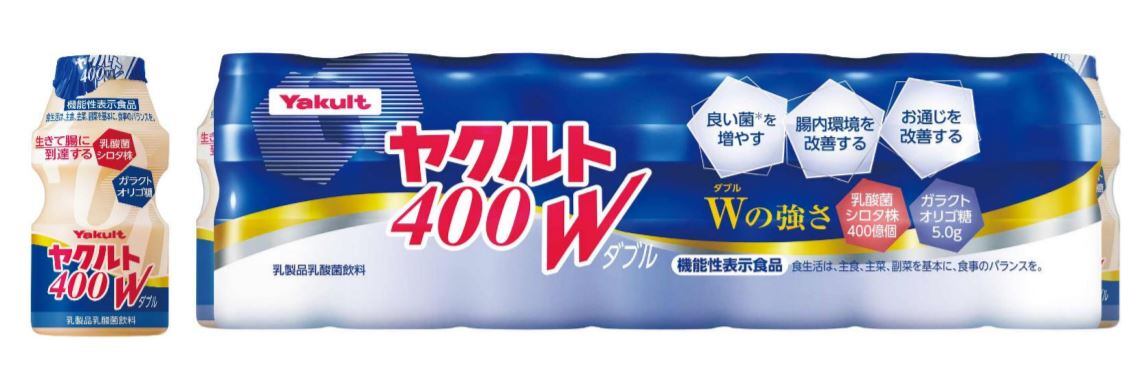The findings of the study sponsored by Yakult Honsha were published in the European Journal of Clinical Nutrition.
The controlled trial consists of a 12-week intervention period, followed by a four-week washout period.
It is also said to be the first time that the multiple effects of LcS were assessed on a large number of children in Vietnam. LcS is also the flagship strain of Yakult isolated in 1930.
This particular trial took place in Thanh Hoa, the northern-most province in central Vietnam.
Over 1,000 children between three and five years old took part.
The intervention group took 65ml of Yakult fermented milk containing 108 CFU/mL of LcS per day, while the control group was not given any product.
The incidence of constipation, diarrhoea, ARI, and changes in height and weight in the children were measured at baseline and at various points of the trial for comparison.
Eventually, data from 1,003 children were analysed.
Less constipation
Constipation in children was reduced with the consumption of the Yakult drink.
By the end of the 12-week trial, the intervention group’s incidence of constipation has dropped from the baseline of 26.2% to 12%.
Whereas the control group saw an increase from 26.7% to 32%. The difference between the two groups was significant as the p value was lower than 0.001.
In the intervention group, the drop in the incidence of constipation plateaued at one point, which stayed at 21% to 21.2% between the fourth and eighth week of the trial.
Also, once the children stopped drinking the probiotic milk, their incidence of constipation went up from 12% to 15.5% during the four-week washout period (from week 12 to week 16).
According to the researchers, the effect of LcS on constipation was also proven in elderly patients, women, and healthy adults.
However, there was a study which showed no improvement.
Less diarrhoea
Drinking of the probiotic milk also reduced the incidence of diarrhoea.
In the intervention group, the incidence of diarrhoea dropped steadily from the baseline level of 7.3% to 4.9% by the end of the trial.
The effect persisted even after the four weeks of the wash-out period, as the rate of incidence further declined to 4.1%.
In the control group, the rate of incidence fluctuated slightly throughout the weeks but stayed between 7.9% and 8.7% in the intervention and washout period.
Protection against ARI
The effect of the probiotic milk on preventing ARI only started to show after the fourth week of the intervention.
In the first four weeks, the incidence of ARI in the intervention group shot up from 23.1% to 29.4% but dropped to 15.9% by the end of the intervention and further to 13.1% after the washout period.
As for the control group, no significant changes were seen.
The researchers said that the mechanism behind the immunoregulatory function of LcS was the upregulation of NK cell activity.
However, because no examination on NK cell activity was performed in this study, further investigation is required to prove this mechanism in Vietnamese children.
“This study provides evidence that supports the benefits of LcS to prevent infectious diseases. ARI is also a major target of probiotics, and several studies around the world have demonstrated the usefulness of probiotic products for the improvement of ARI,” the researchers said.
At the same time, they cautioned that it was important to accumulate data on the effect of probiotic strains on immune function to verify their credibility.
Shorter duration of diarrhoea, ARI
While children drinking the probiotic drink have a lower incidence of diarrhoea, they tend to experience a longer episode of diarrhoea once they are down with the condition.
In the intervention group, the average days of diarrhoea per episode was 4.8 ± 7 days, while that of the control group was lower at 3.9 ± 5 days.
The opposite was seen if they were down with ARI, as their duration of an ARI episode was 4.4 ± 4.3 days, while that of the control group was at 5.0 ± 4.7 days.
More height, weight gain?
There is a possibility that the probiotic milk could increase nutrition absorption, but the researchers said this would require further studies.
There was such as possibility as children drinking the probiotic milk recorded a greater height and weight gain.
By week 16, children from the intervention group gained 0.75 ± 0.47kg, while that of the control group was 0.55 ± 0.50kg.
They also grew 2.09 ± 0.51cm while the control group grew 1.91 ± 0.59cm. Both differences between the intervention and control groups are statistically significant.
However, the researchers cautioned that the observation could be due to the difference in the age of children from the two groups.
“The baseline age between the two groups was different, and significantly higher energy intake was observed in the Probiotic group after 12 weeks of intervention.
“Therefore, it is not clear whether the weight gain observed in the probiotic group was due to a gap in age, the increase in energy intake, or the improvement of nutritional absorption by probiotics,” said the researchers.
They also identified other limitations, such as not adopting a double-blind control-controlled design.
This is because the study also served as a basic health survey for the children in the region.
Future in-vitro and clinical studies are needed to verify the potential beneficial effect of LcS on children’s nutritional absorption, they added.
Source: European Journal Clinical Nutrition
Efficacy of probiotics on digestive disorders and acute respiratory infections: a controlled clinical trial in young Vietnamese children.
https://doi.org/10.1038/s41430-020-00754-9
Authors: Mai, T.T., Thi Thu, P., Thi Hang, H. et al.



